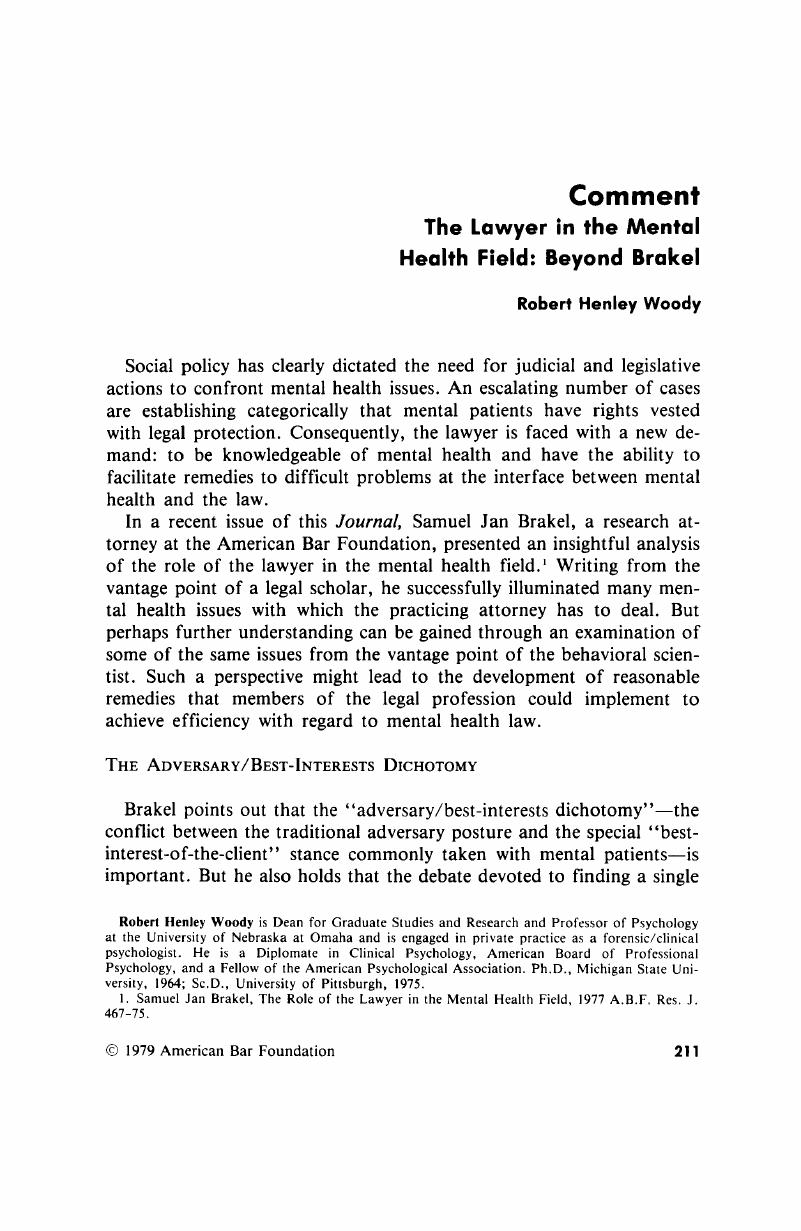No CrossRef data available.
Published online by Cambridge University Press: 20 November 2018

1 Samuel Jan Brakel, The Role of the Lawyer in the Mental Health Field, 1977 A.B.F. Res. J. 467-75.CrossRefGoogle Scholar
2 Id. at 467.Google Scholar
3 It is well known how the disciplinary identities of the professionals working with the mental patient influence the legal concerns. For example, physicians would be most apt to emphasize physical issues, whereas social workers would prefer to press for societal changes, and psychologists would tend to promote individual emotional-behavioral development.Google Scholar
4 Brakel, supra note 1, at 468.Google Scholar
5 Id. at 469.Google Scholar
6 Id. at 475.Google Scholar
7 Id. Google Scholar
8 Robert Henley Woody, Legal Aspects of Mental Retardation: A Search for Reliability (Springfield, Ill.: Charles C Thomas, 1974).Google Scholar
9 Id. at 108.Google Scholar
10 National Conference of Lawyers and Social Workers, A Statement on Interprofessional Relationships at the Graduate School Level: Law and Social Work, 4 Fam. L.Q. 106 (1970).Google Scholar
11 Id. at 108.Google Scholar
12 Id. Google Scholar
13 Id. at 109.Google Scholar
14 Geoffrey C. Hazard, Jr., Interdisciplinary Courses and Programs in Law and Social Work a Survey, 6 Fam. L.Q. 423 (1972).Google Scholar
15 With the exception of the few combined law and psychology programs, such as that at the University of Nebraska-Lincoln and the University of Maryland, that allow students to earn a doctorate in psychology while completing the legal training for the J.D. degree. Despite the distinct mission and the solid rationale for the existence of such programs, their continuation seems to be tenuous (such programs rely almost entirely on grants), and their expansion has been minimal.Google Scholar